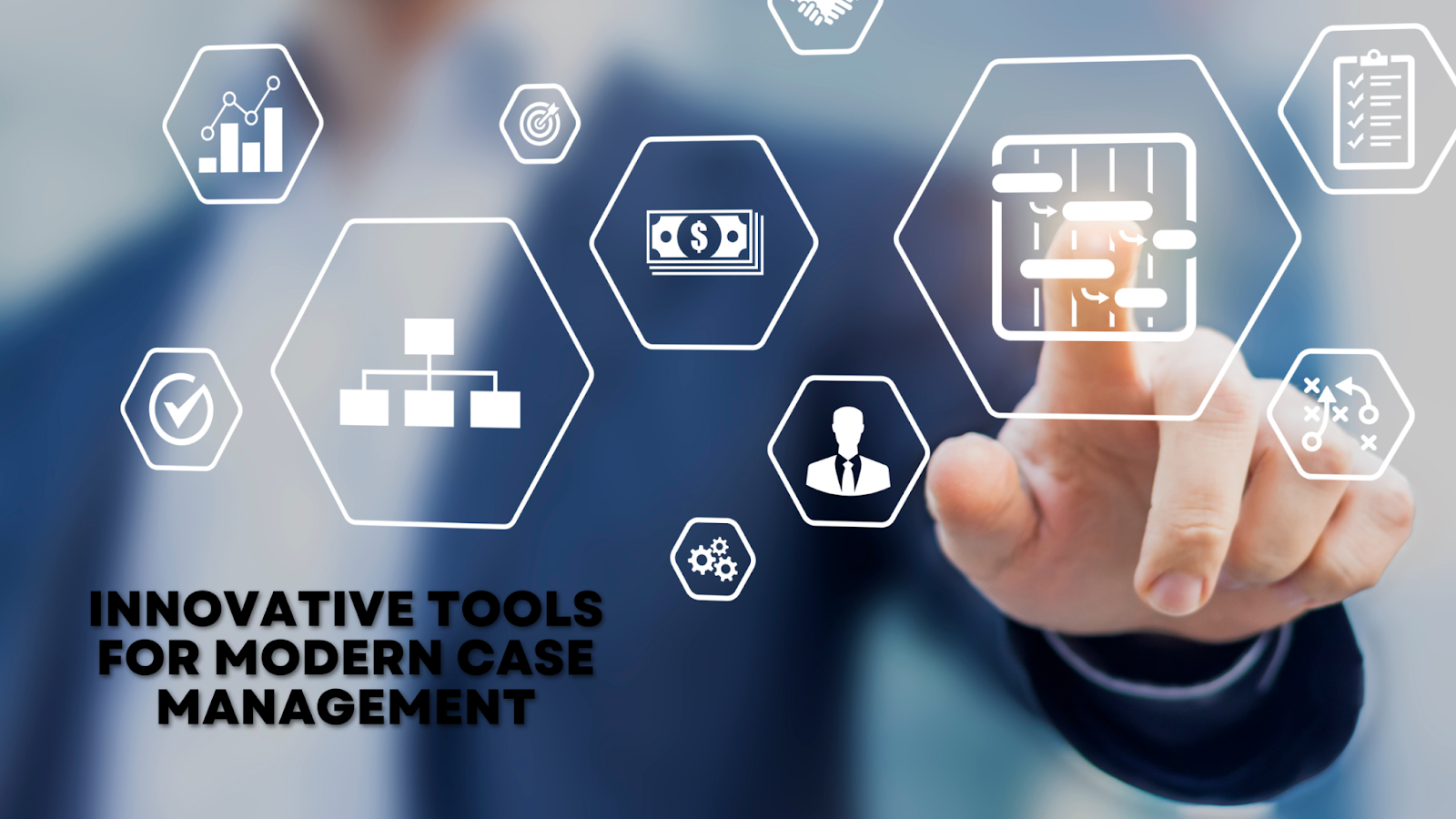In today’s fast-paced and data-driven world, effective case management has become a paramount concern for organizations across diverse sectors. From legal firms and corporate compliance departments to healthcare providers and law enforcement agencies, the ability to efficiently manage cases, streamline investigations, and leverage data insights is critical for success. Fortunately, the evolution of innovative technologies is reshaping the landscape of case management, ushering in a new era of efficiency, precision, and data-driven decision-making.
The Evolution of Case Management Tools
Traditional case management systems have long relied on manual processes, paper-based documentation, and siloed data storage. However, this approach is increasingly proving inadequate in an age where the volume and complexity of data are rapidly expanding.
The transformation from these legacy systems to modern, integrated solutions driven by digital platforms and artificial intelligence (AI) has been a game-changer, enhancing efficiency, collaboration, and data-driven insights.
The integration of AI and machine learning (ML) into case management tools has marked a significant milestone in this technology’s evolution. These advanced technologies have empowered professionals to automate routine tasks, analyze vast datasets with precision, and derive actionable insights that were previously elusive or time-consuming to uncover.
From legal to administrative professionals, almost every job requires turning to innovative tools for modern case management to enhance their operational efficiency and client outcomes. Such software not only streamlines the workflow but also provides unprecedented accuracy and speed in managing vast amounts of case data.
Case Management Tool to Streamline Immigration Process
One such use case where case management software plays a critical role is in immigration industry. An immigration agency requires a CRM to streamline client management and improve efficiency. It helps in tracking client interactions, managing documents, and automating workflows, ensuring no detail is overlooked.
A CRM enhances communication, reduces manual errors, and provides insightful data for decision-making. It also ensures compliance with legal requirements and improves client satisfaction by providing timely updates and personalized services. Case management software for immigration serves as an all-in-one solution designed to streamline the operations of immigration firms. It integrates crucial functions such as billing, document management, form processing, and communication into a single, cohesive platform.
This software enhances efficiency by automating routine tasks, reducing the likelihood of errors, and ensuring that all necessary information is easily accessible. By centralizing all client data and case details, it allows immigration professionals to manage their workload more effectively, stay compliant with legal requirements, and provide exceptional service to their clients.
This approach allows organizations to focus on strategic decision-making and delivering higher-quality service, thereby setting a new standard in the realm of case management.
Core Technologies Redefining Case Management
Generative AI and Language Models
One of the most disruptive technologies impacting case management is the advent of generative AI and language models, exemplified by tools like OpenAI’s ChatGPT. These cutting-edge systems have shifted the paradigm of data handling from a traditional “librarian” model, where information is merely retrieved, to an “advisor” model that enables dynamic interaction with case data.
Through natural language processing and advanced machine learning algorithms, generative AI models can comprehend and generate human-like responses to queries, providing tailored insights based on the specific case context. This capability is invaluable in fields where nuanced understanding and effective communication are paramount, such as legal proceedings or regulatory investigations.
Knowledge Graphs and Data Integration
Another core technology redefining case management is the application of knowledge graphs for enhanced data correlation and access. In complex case management scenarios, data often resides in disparate silos, making it challenging to establish connections and derive meaningful insights.
Knowledge graphs, powered by advanced data integration techniques and semantic technologies, create interconnected networks of information, linking disparate data points and enabling professionals to navigate and explore data relationships with ease. By uncovering hidden connections and surfacing relevant information, knowledge graphs empower case managers to gain a comprehensive understanding of intricate cases, supporting more informed decision-making and strategic planning.
AI in Workplace Investigations
The adoption of AI in workplace investigations has revolutionized the way organizations approach these sensitive and often time-consuming processes. By automating routine tasks and leveraging machine learning algorithms, AI streamlines investigations, reduces the time spent on repetitive activities, and enhances the precision of outcomes.
AI-powered tools can rapidly analyze vast amounts of data, including emails, documents, and digital communications, identifying patterns and anomalies that might otherwise go unnoticed. Additionally, advanced natural language processing capabilities enable these tools to comprehend the nuances of language, sentiment, and context, improving the accuracy of findings and reducing the risk of oversight or bias.
Implementing Modern Tools in Legal and Compliance Settings
While the potential benefits of integrating advanced technologies into case management processes are undeniable, the implementation process itself presents challenges and considerations that organizations must address.
One of the primary hurdles is the integration of these new technologies into existing systems and workflows. Ensuring seamless data exchange, compatibility with legacy software, and adherence to industry-specific regulations and compliance standards is crucial. Developing robust implementation strategies, leveraging best practices, and seeking guidance from experienced technology partners can mitigate these challenges and facilitate a smoother transition.
Additionally, the successful adoption of modern case management tools hinges on comprehensive training programs for legal and compliance professionals. Upskilling teams to effectively leverage these technologies is essential for realizing their full potential and ensuring accurate and ethical usage.
Organizations must also prioritize privacy and data security considerations when implementing AI-driven case management solutions. Robust data governance frameworks, stringent access controls, and rigorous testing procedures are necessary to safeguard sensitive information and maintain the integrity of case data.
Future Trends and Predictions
As the adoption of modern case management tools continues to gain momentum, the future holds exciting developments and innovations that will further revolutionize the field.
AI Advancements and Predictive Analytics
The rapid evolution of AI and machine learning technologies is poised to significantly enhance the capabilities of case management tools. Advanced predictive analytics models will empower professionals to anticipate potential issues, identify risk factors, and proactively address challenges before they escalate.
Furthermore, the integration of explainable AI (XAI) techniques will increase transparency and interpretability, enabling professionals to understand the reasoning behind AI-generated insights and recommendations. This increased transparency will foster trust in AI-driven decision-making processes and facilitate more informed and ethical applications of these technologies.
Knowledge Graph Expansion and Data Integration
The power of knowledge graphs is expected to grow exponentially as organizations embrace more comprehensive data integration strategies. By interconnecting diverse data sources, including structured and unstructured data, knowledge graphs will create rich, interconnected data ecosystems that enable unprecedented insights and seamless information access.
This expansion will enable case managers to navigate complex data landscapes with ease, uncovering hidden connections and patterns that would have been nearly impossible to discern through traditional methods. Furthermore, the integration of real-time data streams and Internet of Things (IoT) data will enable proactive case management and real-time monitoring of evolving situations.
Regulatory Changes and Industry Adoption
As the benefits of modern case management tools become increasingly evident, regulatory bodies and industry associations are expected to adapt their guidelines and best practices to accommodate the responsible use of these technologies. This shift will not only provide a framework for ethical and compliant implementation but will also encourage wider adoption across various sectors.
FAQs
1.What is a case management tool?
A case management tool is a software or system designed to support the comprehensive organization and handling of client cases by professionals across various sectors, including healthcare, law, and social services. These tools help manage client information, track interactions, oversee case progress, and ensure that all necessary steps are completed efficiently and effectively.
2. What are the 4 components of case management?
The four core components of case management are:
Assessment: Identifying the client’s needs and the resources available.
Planning: Establishing goals and creating a plan to meet those needs.
Implementation: Executing the plan through coordination of services and resources.
Evaluation: Reviewing and assessing the effectiveness of the intervention and the outcomes to adjust the plan as needed.
3. What are case management models?
Case management models are structured approaches to managing client care that vary depending on the context and needs of the clients. Common models include:
The Brokerage Model: Focuses on assessing needs and referring clients to appropriate resources without much ongoing support.
The Clinical/Therapeutic Model: Provides intensive, ongoing support and is often used in healthcare settings.
The Strengths-Based Model: Emphasizes the client’s strengths and capabilities in overcoming their challenges.
The Integrated Model: Combines elements from various models to provide comprehensive support tailored to complex needs.



